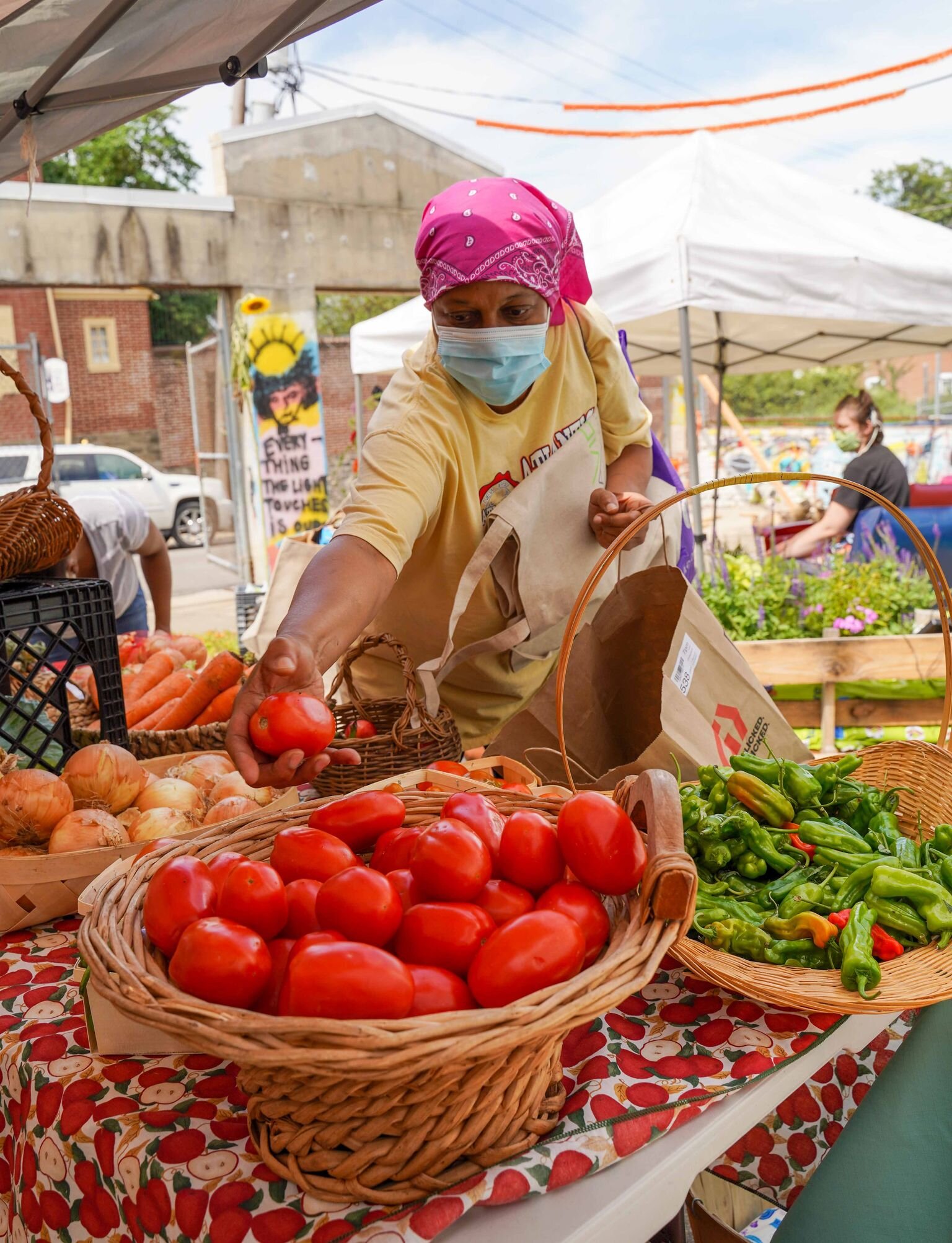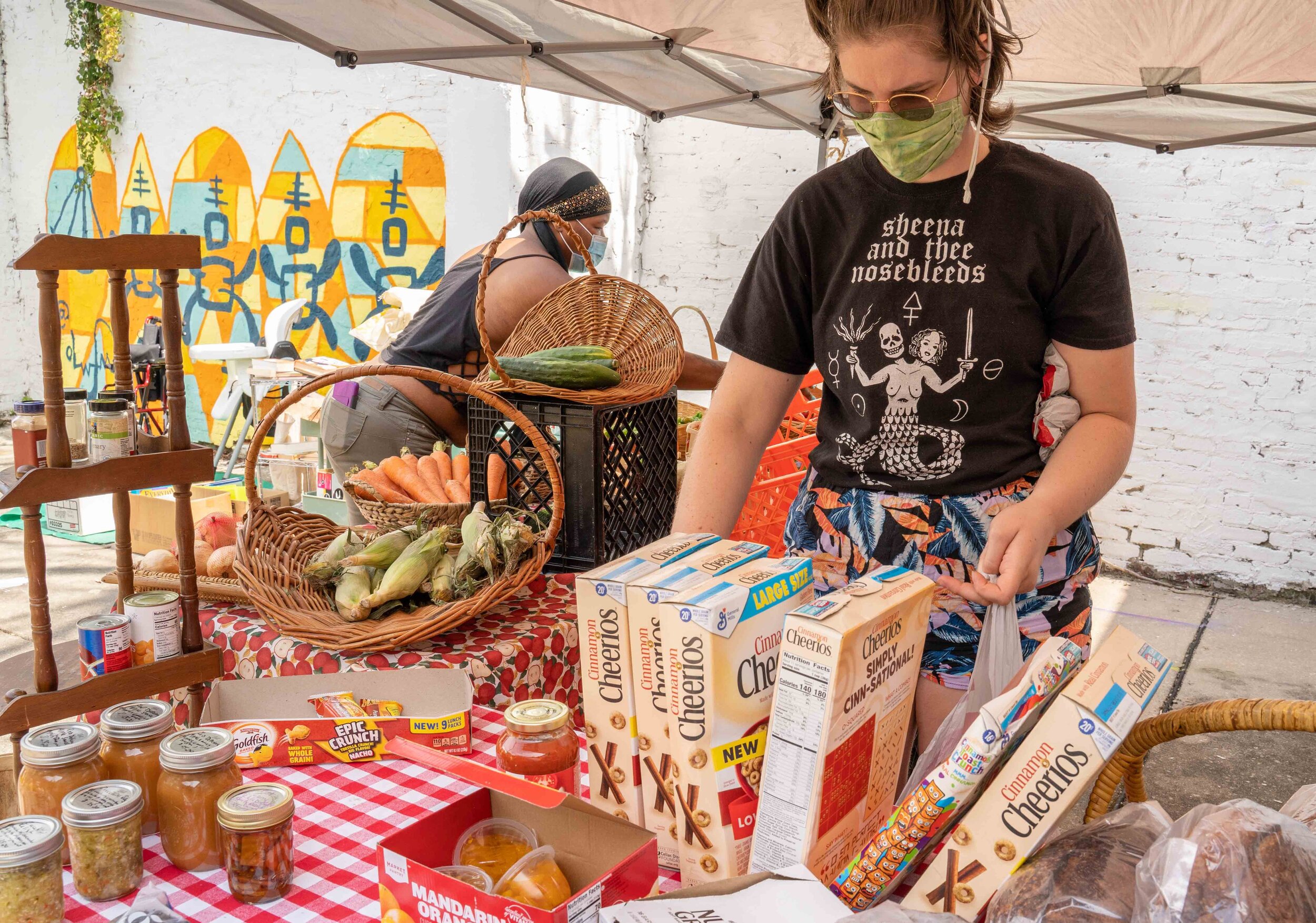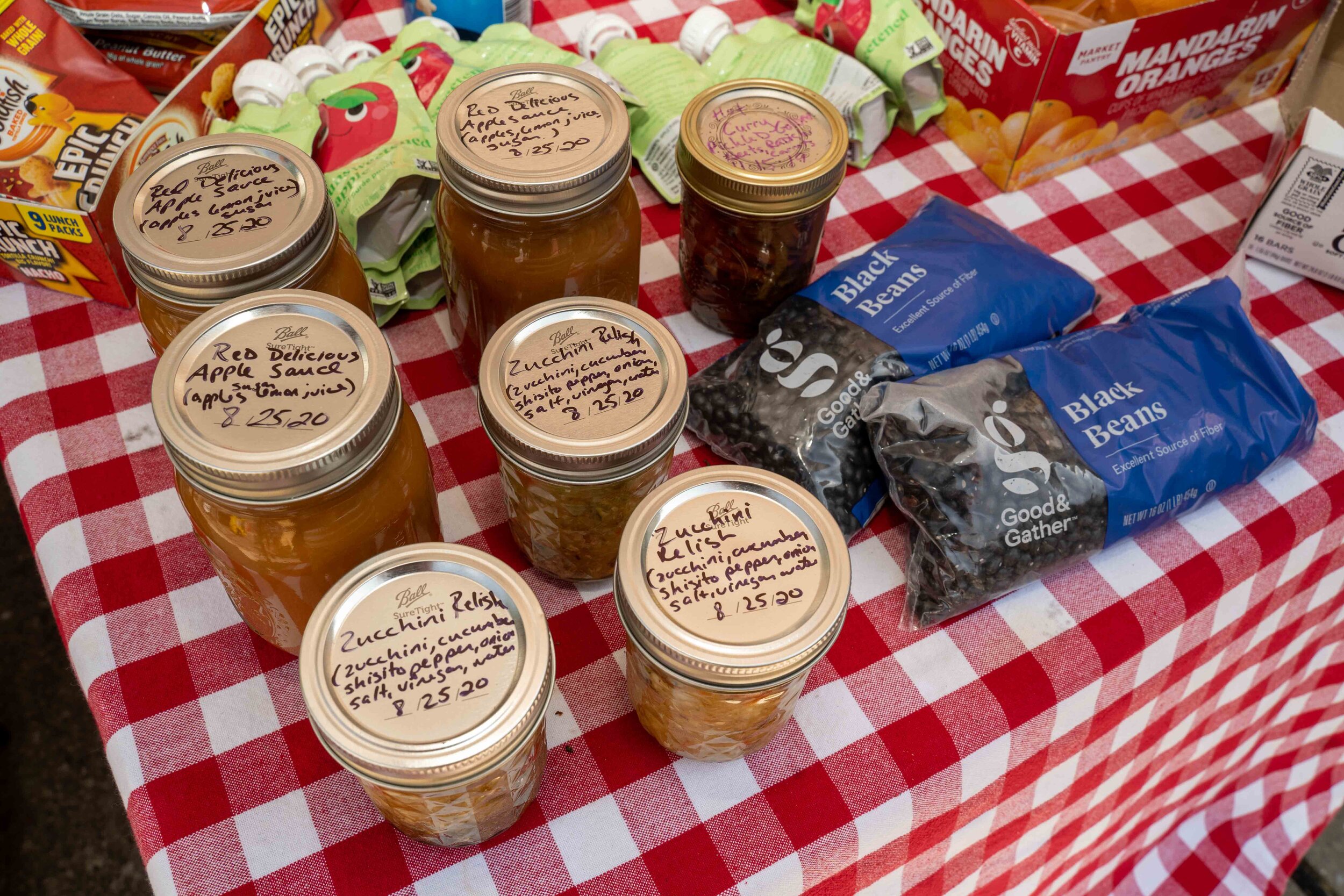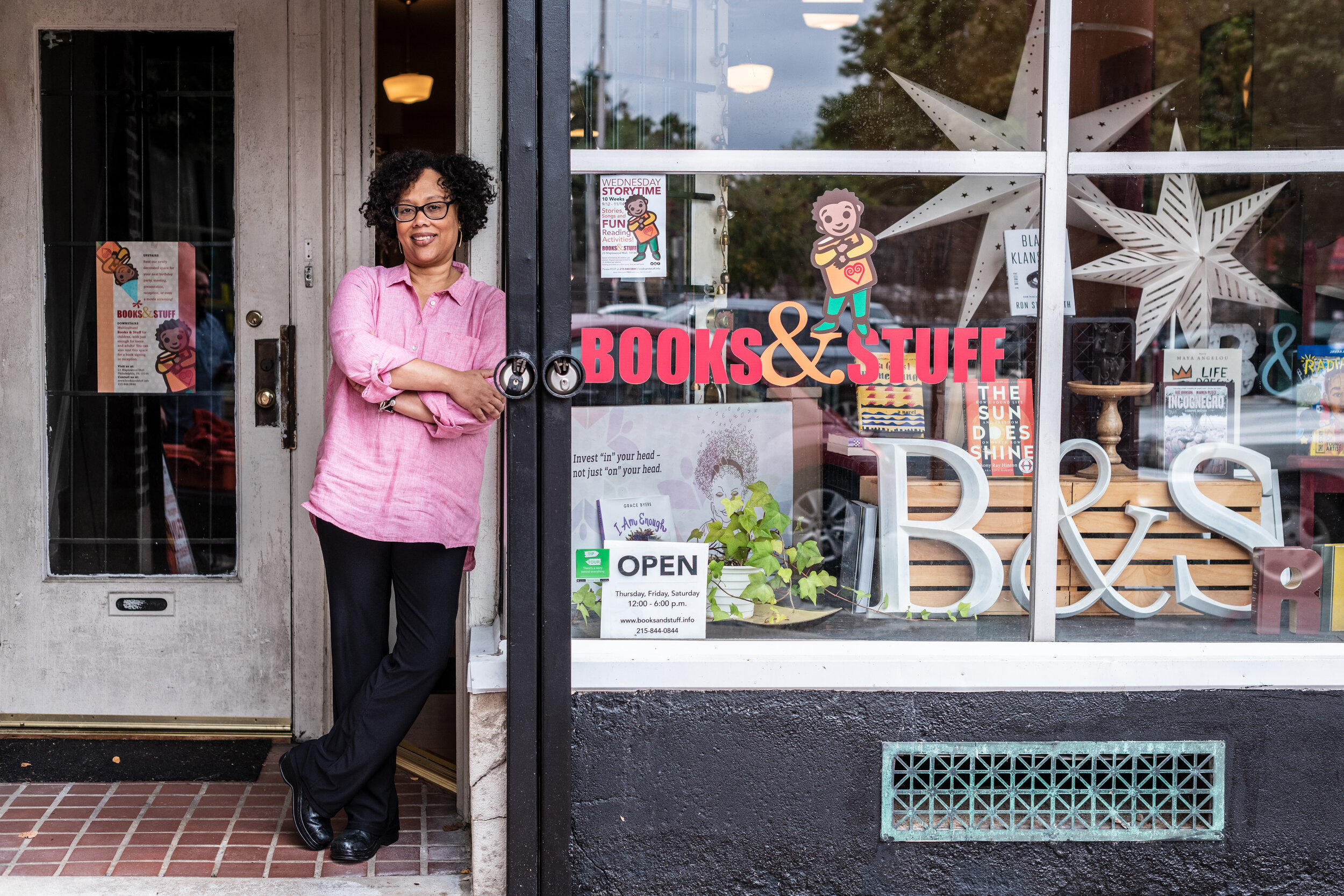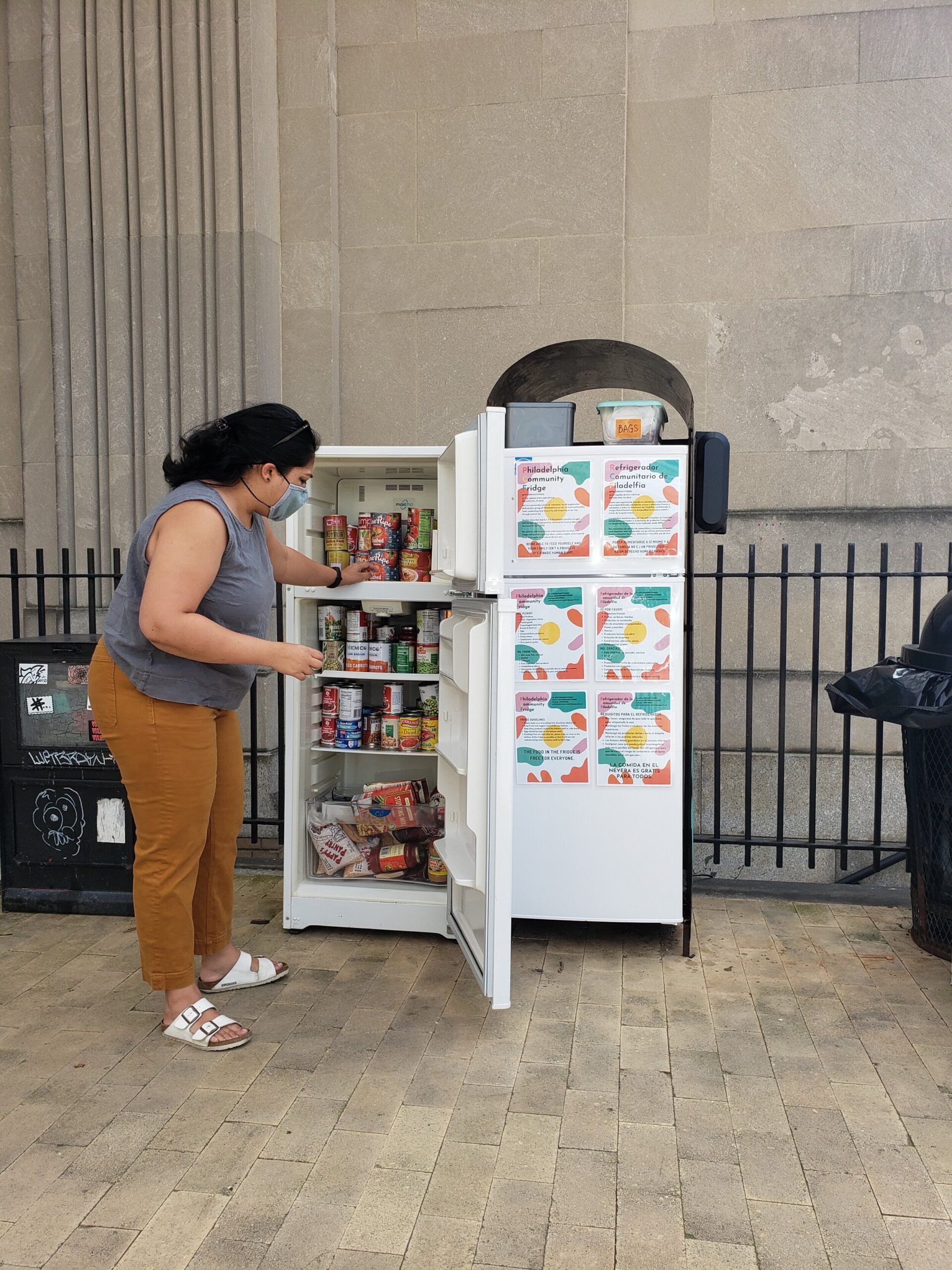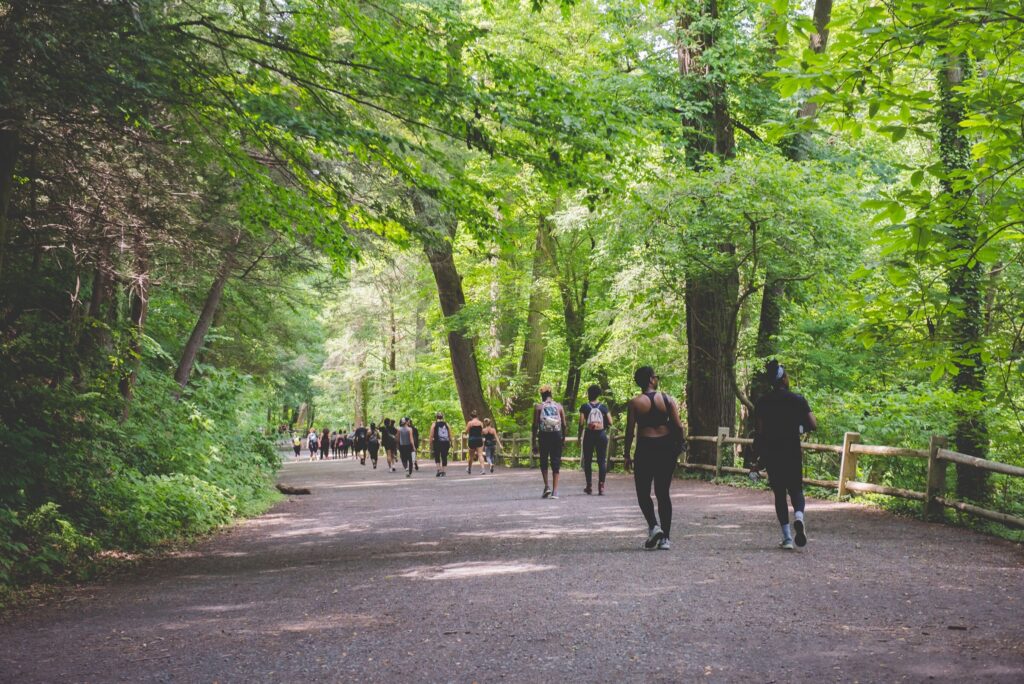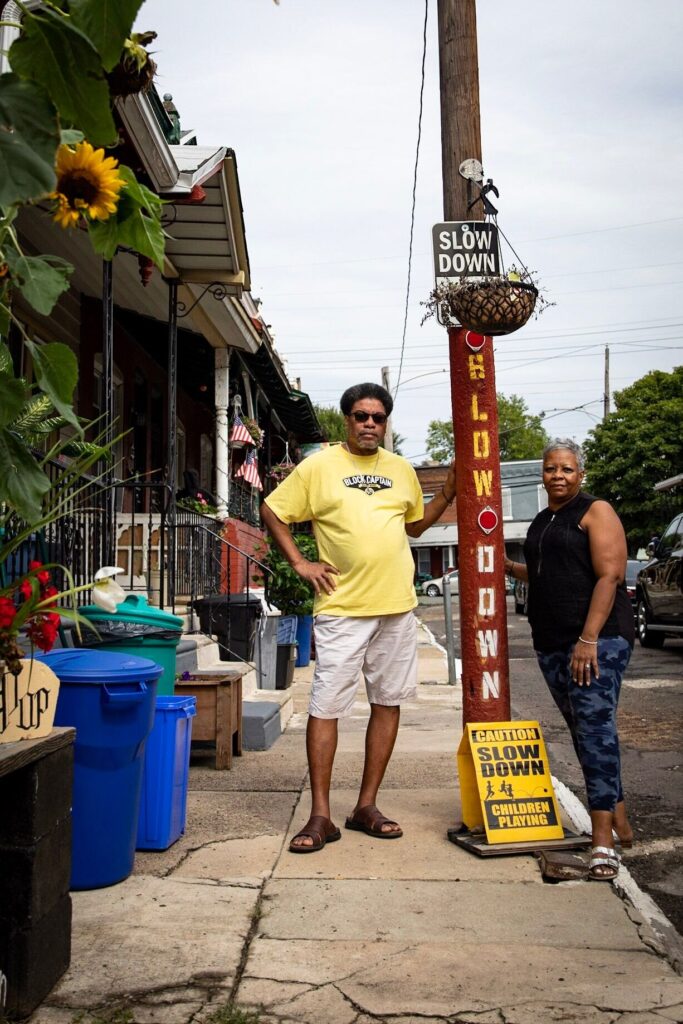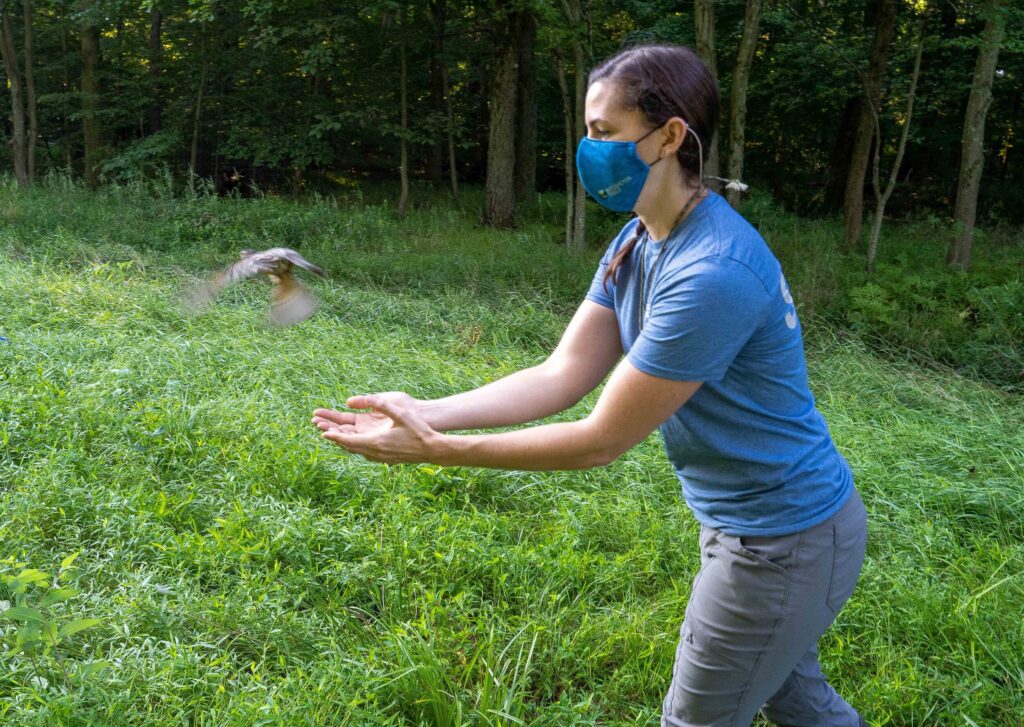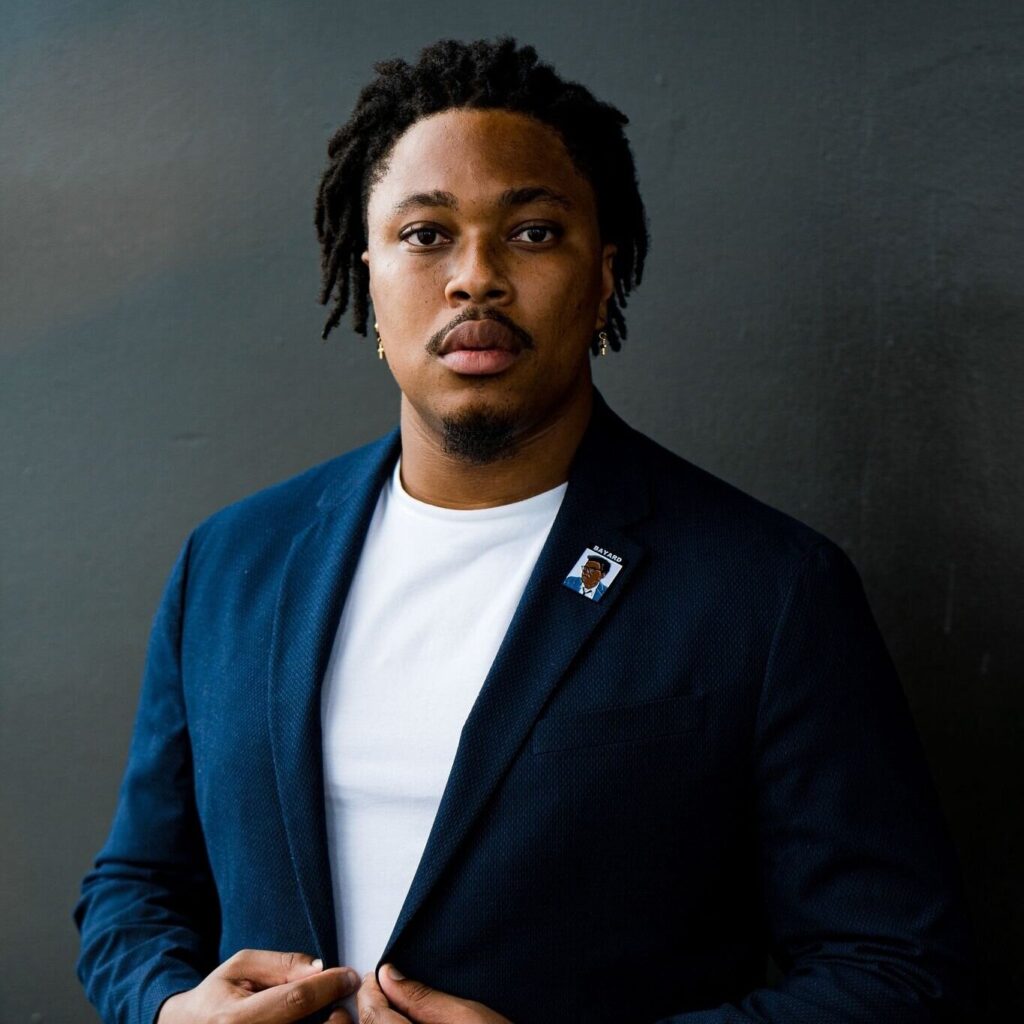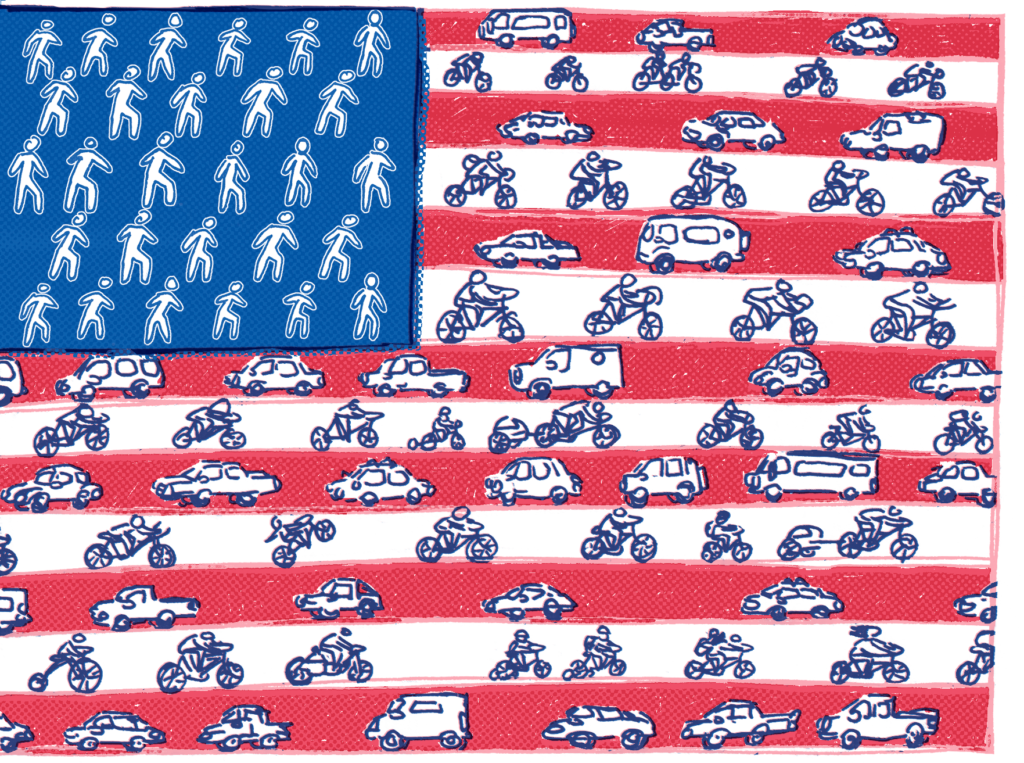Something special happens at the corner of Germantown Avenue and Church Lane every Wednesday and Saturday afternoon. A collective of neighbors and volunteers gather in The People’s Lot, with cardboard box cutouts that read “Free Food,” but that’s not all that brings people in.
If you travel to The People’s Lot, you will see an array of volunteers, organizers and neighbors unloading boxes of produce, but also sharing laughs and stories. Neighbors gather their essential needs but stay for a little longer, talk a bit longer and sometimes rest in the brightly colored chairs. Because the group is not organizing a charity, they are making a community investment.
Their main goal is simple: We have to take care of each other.
The group is the Germantown Supply Hub, a Black-led mutual aid and collective care program. Its mission is to supply a “free market” for everyone, and the market gives more than food. The Supply Hub provides essential household supplies, and they raise money for neighbors struggling to find and keep housing. The group accomplishes this by inviting neighbors to help neighbors, free of charge.
“This is not charity. This is providing a basic human right,” says Eppchez Yes (Ey/Em), one of the 12 organizers for the Supply Hub.
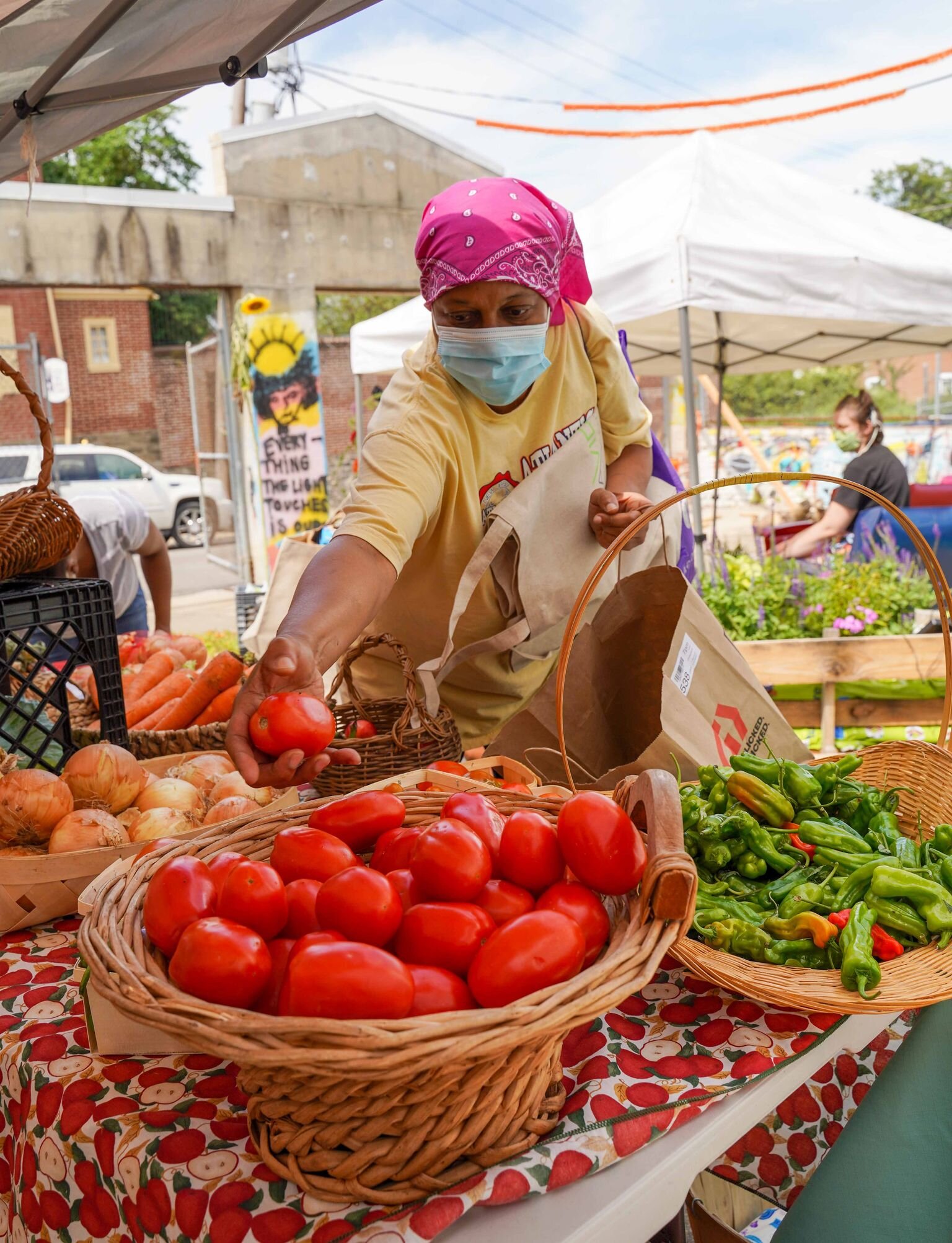
The two afternoons start with vehicles lined up along Church Lane. Volunteers unload food and items to distribute to neighbors. They partner with Philly Foodworks, The West Philly Bunnyhop, community gardens, Philly Food Forests and local backyard farmers. Neighbors enter the lot with items or food their household does not need but another may, like diapers, toiletries, furniture and books.
“People show up in return … they get the fresh produce, and then give back whatever they can,” Yes says. “People come and donate whatever they have that they’re not using anymore, that someone else may be able to make use of.”
The Supply Hub launched in June after the COVID-19 pandemic heightened food disparities in Philadelphia. The public health emergency highlighted severe, systemic problems that the government could not address sufficiently. Yes and eight other organizers, including Ashley Davis and Shanel Edwards, assessed how they could foster community investment.
“We’re trying to meet people’s needs,” Edwards says. “I think the most human way to do that is through relationship building and not assuming that we know what [others] need.”
The Supply Hub settled at The People’s Lot, and the space aligns with their values. The lot is part of artist Victor Jackson’s OURchive project. It is a shared space for many creative Black youth and artists to commune, dream and organize. Davis says it’s been a pleasure to witness people settle in the lot’s chairs and engage with one another while enjoying mutual aid.
“Beautiful conversations spark,” Davis says. “People share recipes, food, dreams of gardening—and that’s what we do here [at the Supply Hub]. We share.”
Giving back to communities has become popular since disadvantaged groups found themselves in vulnerable positions, such as working at hazardous essential jobs.
University of Pennsylvania sociology professor Regina Baker says that the act of receiving free food or items from charities requires disadvantaged populations to have a dependent relationship with the people helping them.
“Vulnerability, in essence, is just this idea of having to rely on other people to provide for you,” Baker explains, referring to food insecurity. “It’s this idea that ‘I need to be saved.’ ”
However, according to Baker, navigating vulnerability might be easier for underprivileged groups participating in mutual aid rather than charity. While people tend to perform charity as a form of “giving back,” it requires a stronger or independent entity to give to those less fortunate. Mutual aid creates a symbiotic relationship, where everyone offers goods or assistance to each other.
“It’s … this reciprocal relationship and I think it makes people proud,” Baker says. “People in the community doing something for the community for mutual benefit versus just going someplace and getting something.”
Yes says a symbiotic relationship is present in the Germantown mutual aid program. An example of a neighbor who participates in both giving and taking is Miss Dawn Butler, whose garden at the Nicholson Church Lane Community Garden is a few blocks from the Supply Hub.
Prior to the pandemic, the Nicholson community garden donated fresh produce to Whosoever Gospel Mission, a Germantown transitional living program for men. After learning the mission would not need donations this year, Butler thought of a new idea.
“When I seen the ladies out there doing what they were doing, and not asking for anything,” Butler says, “I let them know that once my stuff started growing, I was going to donate my vegetables to them.”
While most working days she donates food from her garden, she also gathers diapers for her neighbors who have a newborn. She says the Supply Hub has benefited the neighborhood, especially those who do not have enough money to cover all of their living costs.
“Some people have to ask, ‘Do [we] want to pay the bills this week, or do [we] want to get food?’ ” Butler says.
As the warm weather comes to an end, mutual aid programs like the Supply Hub consider how their programs will continue through fall and winter.
Todsza English is working on the answer. English is a volunteer-turned-organizer for the Supply Hub. She stumbled across the mutual aid program after taking a stroll through Germantown. She felt at home with the Supply Hub, especially as many of her ideas and goals lined up with theirs.
English says she cannot stand to let food go to waste and that she also knows “people on my block who cannot drive because they are elderly or sick” who can benefit from the program.
English runs a nonprofit called Live Decent, whose mission is to help community members become self sufficient through cooking and crafting projects. The Supply Hub brings her self-sufficiency practices to the mutual aid program. English gathers leftover produce from the Supply Hub on Saturdays and creates non-perishable items for people to collect the following week. For example, English takes leftover zucchini to make relish.
“I’m very concerned about moving forward in the winter,” English says. “The donations we’re getting now primarily is fresh produce. That’s going to stop and many people don’t know how to preserve food,” English says.
The Supply Hub is planning food-preservation workshops, and English will continue to provide non-perishables. Although winter will present challenges, the Supply Hub plans to operate long term and normalize food redistribution and the idea of meeting all needs and wants, free of charge.
“If I were to dream my own dream, it would be a free world,” Organizer Ashley Davis says. “That this is set up everywhere, and people are sharing their resources, knowing their neighbors [and knowing] what one another needs.”

